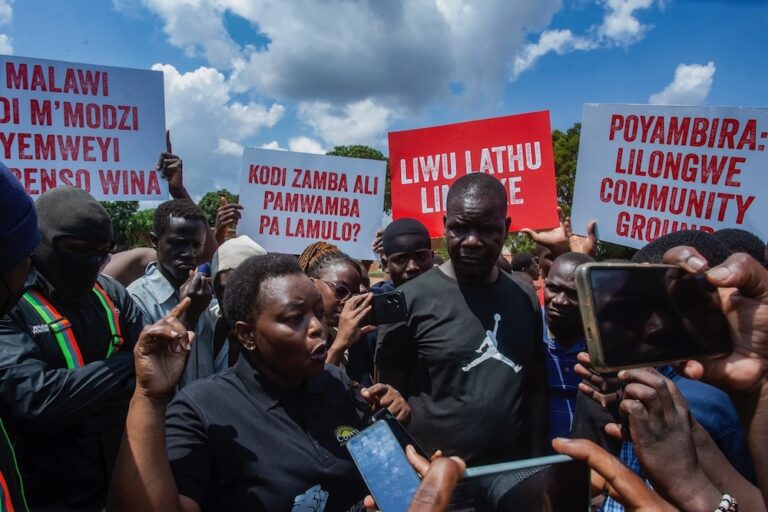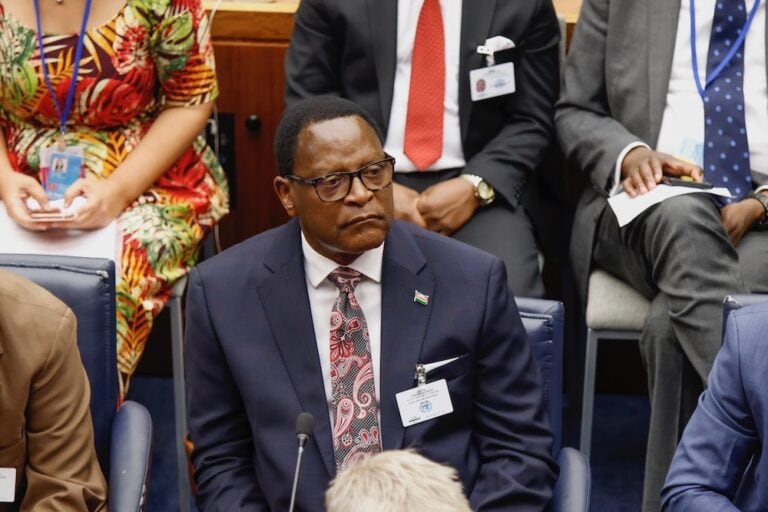(ARTICLE 19/IFEX) – The following is a 20 April 1999 ARTICLE 19 statement: ARTICLE 19 IN LONDON DECLARES ITS SUPPORT FOR ITS MEDIA MONITORING TEAM IN MALAWI Responding to a statement in today’s edition of the Malawian newspaper, Malawi Today, the London-based head office of ARTICLE 19, the International Centre Against Censorship, declared its total […]
(ARTICLE 19/IFEX) – The following is a 20 April 1999 ARTICLE 19 statement:
ARTICLE 19 IN LONDON DECLARES ITS SUPPORT FOR ITS MEDIA MONITORING TEAM IN
MALAWI
Responding to a statement in today’s edition of the Malawian newspaper,
Malawi Today, the London-based head office of ARTICLE 19, the International
Centre Against Censorship, declared its total support for the expert media
team which is monitoring the Malawi media during the run-up to national
elections due in May 1999.
Andrew Puddephatt, Executive Director of ARTICLE 19, said:
“The allegations in Malawi Today that the weekly reports of ARTICLE 19’s
monitoring team are politically-motivated and that a ‘renegade’ ARTICLE 19
may be at work in Malawi are utterly without foundation. This project has
our total support, as do those who are leading it. They have strong records
of support for freedom of expression and human rights and are apologists for
nobody. Anybody who is aware of ARTICLE 19’s long-running campaigns for
respect for human rights in Malawi – which predate the present government –
will know that allegations of political bias are ridiculous. By contrast,
the political affiliations of Malawi Today are well known.”
He added:
“ARTICLE 19 has undertaken media monitoring projects in a wide-range of
other African countries, for example, Kenya, Mozambique and Zimbabwe. We
monitored the media during the 1994 elections in Malawi. We employ a
coherent and consistent methodology in all our media monitoring projects
which is transparent and impartial and which has been recognized positively
by many in the international community.”
He concluded:
“Our focus in media monitoring projects has always been on the
publicly-owned or controlled media because they have a unique ‘public
service’ obligation to the citizens of a country. All too often these
obligations are not observed. Those who criticize us for this focus should
instead respond to the issues which we are raising in our weekly reports.”


